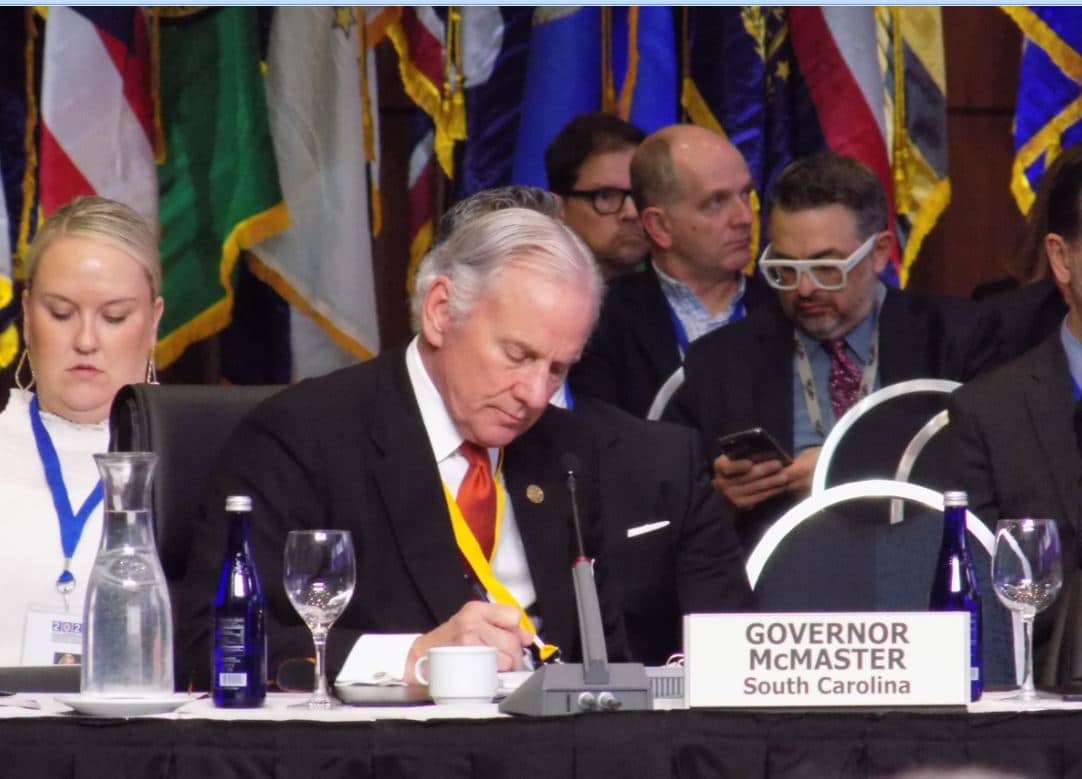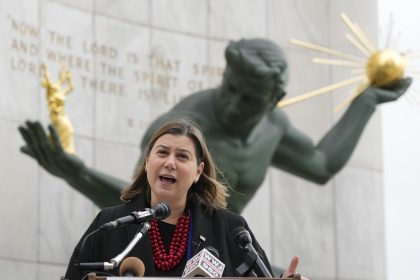South Carolina Urges 4th Circuit to Lift Injunction on ‘Fetal Heartbeat’ Abortion Law

WASHINGTON — A federal appeals court in Richmond, Virginia, on Thursday heard the first day of oral arguments in a lawsuit challenging South Carolina’s “fetal heartbeat” abortion law.
The proceedings came as the nation awaits a ruling from the U.S. Supreme Court on a case out of Mississippi that could dramatically reverse portions of Roe v. Wade, the 1973 case that affirmed a woman’s right to have an abortion.
Like Mississippi, South Carolina was one of several Republican-controlled states to pass tighter abortion restrictions in recent years in the hope that the new conservative majority of justices on the Supreme Court would use one of them as the vehicle to toss the court’s 49-year-old decision.
On Thursday, the question before the 4th U.S. Circuit of Appeals is not quite so sweeping. The state is asking the appellate court to determine whether a federal district court in South Carolina erred when it granted a preliminary injunction against enforcing the law.
South Carolina Gov. Henry McMaster, who signed the bill into law last year, joined other defendants in arguing the plaintiffs in the case, including South Carolina Planned Parenthood, lack the standing necessary to bring suit against the law, and that the federal judge who enjoined the law in its entirety wrongly imposed his own views on the act’s purposes when he did so.
The defendants want the 4th Circuit to remand the case to the lower court for dismissal.
The case is Planned Parenthood South Atlantic, et al. v. Alan Wilson, et al.
“While the U.S. Supreme Court’s decision to hear the case related to Mississippi’s law offers great hope and promise for protecting the lives of the unborn, we must defend South Carolina’s Fetal Heartbeat Act against every challenge at every level,” said Gov. Henry McMaster in a written statement.
“As I’ve said before, the right to life is the most precious of rights and the most fragile. We must never let it be taken for granted or taken away. And we must protect life at every opportunity, regardless of cost or inconvenience,” he continued.
The law at the center of the controversy requires doctors to perform ultrasounds to check for a so-called “fetal heartbeat,” which can typically be detected about six weeks into pregnancy. If cardiac activity is detected, the abortion can only be performed if the pregnancy was caused by rape or incest, or if the mother’s life is in danger.
By comparison, the Mississippi case before the U.S. Supreme Court would ban virtually all abortions after 15 weeks.
Opponents of South Carolina’s law have argued that many women do not know they are pregnant at six weeks. And, they say, with such an early deadline, the law gives women little time to consider whether to have an abortion.
The new law does not punish a pregnant woman for getting an illegal abortion, but the person who performs the procedure can be charged with a felony, sentenced up to two years and fined $10,000 if found guilty.
South Carolina has only three clinics that provide abortions, each of them located in one of the state’s three largest cities: Charleston, Columbia and Greenville.
None of these facilities perform abortions after the first trimester, and two of them only perform abortions on a part-time basis.
Last summer, 20 Republican-led states filed petitions supporting the South Carolina law. Not long after, 20 Democratic attorneys general voiced support for the legal challenge to South Carolina’s law, arguing that the restrictive measure could harm their states by taxing resources if women cross borders to seek care.
Two Other Abortion Bills Moving Through SC House
While all this has been playing out, two additional abortion bills are moving through the South Carolina State House.
The Senate Medical Affairs Subcommittee voted Wednesday to move forward with the two bills after hearing from supporters and critics of the legislation. The three Republicans on the subcommittee voted in favor and the two Democrats against.
One of the bill’s sponsors, Sen. Richard Cash, a statehouse Republican, said S.988, which would ban almost all abortions in the state, would be a trigger law. It would take effect if the U.S. Supreme Court overturns Roe v. Wade.
He said, “If Roe v. Wade acknowledges the authority of South Carolina to regulate abortion to the extent of this bill … at that point this bill would go into effect. It’s a trigger law because it depends on the state’s authority of regulating abortion being acknowledged by the Supreme Court.”
Dan can be reached at [email protected] and at https://twitter.com/DanMcCue
























